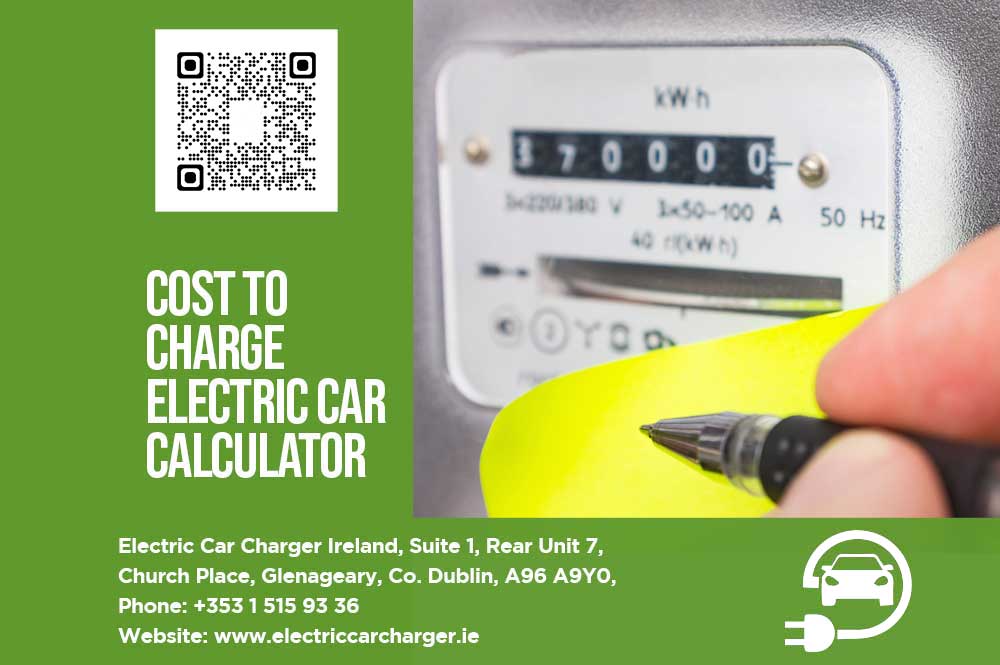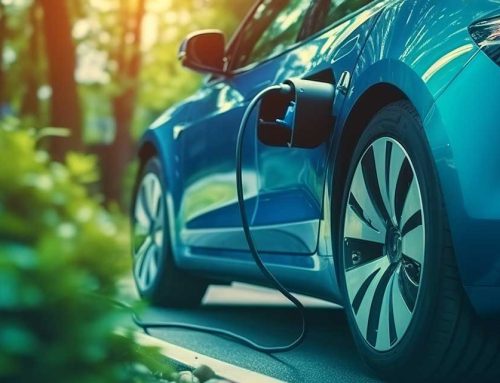Table of Contents
- Understanding Electricity Rates
- Factors That Determine Charging Costs
- Introducing Our Estimation Tool
- Using the Basic EV Charging Cost Estimator
- Complementary Guidance
Cost to charge electric car calculator – Picture this…”my neighbour Sean” had been researching electric cars recently as his old petrol Clio was on its last legs. He liked the idea of cheaper running and maintenance costs but struggled to reconcile the higher sticker prices of EVs. However, the biggest hurdle was uncertainty about the actual expenses of charging an electric car at home. (More info on – Weighing the Pros and Cons of Electric Charging Stations)
“It’s impossible to know what charging will add to my bill each month,” he lamented over the fence one day. “Electricity rates are already confusing enough!” I assured him I would help analyse potential EV charging costs to ease his decision-making worries.
While EVs have higher upfront prices, not paying for petrol does balance some costs over time. However, most prospective EV buyers have little grasp of what charging an electric vehicle instead of filling up at the petrol pump actually costs. (More info on – Charging station for electric vehicle) Developing an understanding is hugely important in determining total cost of ownership – as well as overcoming perceptions.
In the following article ,we will explore the key variables around electricity pricing related to EV charging and offer a basic yet useful estimator tool for readers weighing an electric vehicle purchase decision similar to Sean. (More info on – Buying an Electric Car in Ireland) We will examine differences between off-peak home charging rates, public station costs, time-of-use plan savings and much more. Let’s have a look under the bonnet! (More info on – EV Home Charging)
Understanding Electricity Rates
(Figures are estimates based on rate info (juno energy) available as of Dec 2023)
One of the most significant variables determining EV charging costs is the electricity rate you pay. For home charging, utilising special nighttime off-peak rates of around €0.20 per kWh can minimise costs. (More info on – EV Chargers Ireland) This compares quite favourably to ad-hoc daytime residential electricity prices closer to €0.32 per kWh.
Meanwhile public fast charging stations typically demand premium pricing from €0.30 up beyond €0.45 per kWh – amongst the priciest ways to charge certainly. (More info on – Electric Car Chargers for Hotels)
You might also choose a dynamic time-of-use or managed electricity rate plan through providers like Electric Ireland. These may offer low overnight charges if charging during those hours but much higher peak rates during late afternoon and early evening grid demand surges. Leveraging smart charging capabilities automatically shifts demand outside high pricing periods.
As you can see, there is significant variability in pricing per kWh consumed across the various scenarios. This fluctuating electric cost component coupled with the lack of existing definitive models for petrol expenditure makes it hard to estimate what an EV charging bill may look like.
Hopefully breaking down the differences between off-peak home charging rates, daytime/workplace pricing, and premium public station costs clarifies the basic economics. We also must ensure you pick the optimal electricity subscription and charging times to minimise costs as an EV owner. More to come!
Factors That Determine Charging Costs
Now that we have clarified electricity pricing fundamentals, what are the other primary factors that dictate what charging an EV costs in the real world?
The charger type and associated charging speed are crucial. Entry-level Level 1 charges use regular wall outlets for very slow charging. Level 2 chargers require professional installation of dedicated circuits for faster charging. Charging speed aligns with how rapidly your EV’s battery capacity is replenished. This influences total charging duration and electricity consumption.
Home charging also allows controlling costs through managed charging scheduling, unlike public stations. Parking reliability at home also promotes convenience and charge completion. Battery size differences mean variance in the potential electrical range of EVs. So your kWh charging requirements fluctuate accordingly.
Driving style and usage behaviours also impact charging inputs. Aggressive accelerating drains more battery thus requiring greater electricity to recharge. Environmental conditions like cold weather can reduce the rated range by 10-30%, meaning more charging. (More info on – Charging An Electric Car In Cold Weather) Electricity rates per kWh as outlined earlier will also result in charging cost differences.
Even charger locations introduce variability. Home rates are the cheapest, while workplace and public chargers will likely be more expensive. (More info on – How to Use an EV Public Charger) So your charging venue choices also influence expenditures. As you can see many interrelated factors shape what powering an EV truly costs!
Introducing Our Estimation Tool
To provide a useful mechanism for readers like our friend Sean to get a handle on potential at-home charging costs given their individual circumstances, we’ve built a straightforward calculator tool. The key inputs it requires are:
- Battery Capacity (kWh): The total energy capacity of the electric vehicle’s battery.
- Electricity Rate (per kWh): The cost of electricity, typically charged per kilowatt-hour.
- Charge Required (kWh): The amount of electrical energy needed to charge the vehicle’s battery.
(More info on – Wallbox EV chargers)
Based on these inputs, our calculator aims to provide user-friendly estimation of the cost to charge an electric vehicle at home, helping car owners to budget their expenses effectively for fuelling their EV. (The output is an approximated ballpark charging expenditure figure for planning purposes and should not be considered to be 100% accurate in forecasting the potential future costs for charging an EV.)
Given the many cost variables and driving style being impossible to precisely predict upfront, our tool does not claim 100% accuracy. However it serves as a strong starting point for readers weighing an EV purchase decision who have no frame of reference for annual at-home charging costs today. It simplifies estimating based on your EV preferences, charger expectations, and electricity rates.
We will demonstrate usage examples next. Always supplement the calculator guidance with your own driving and charging knowledge. Please send feedback so we can continue refining the tool!
EV Home Charging Calculator
Using the Basic EV Charging Cost Estimator
Interacting with our basic estimation tool is simple and straightforward. It aims to provide EV drivers or prospective buyers with user-friendly charging cost estimates to aid budgeting and planning.
First, you input your electric vehicle’s total battery capacity in kilowatt-hours (kWh). For example, the popular Nissan Leaf has a 40 kWh battery pack. This establishes the full electrical storage potential.
Next, enter your local residential electricity rate, typically in cents per kWh. Off-peak nighttime home rates around €0.20/kWh are most economical. Check your latest electric bill for pricing.
Finally, specify the battery charge percentage needed for your regular driving habits. If your daily commute is 40km, you might require 60% average charge. But allowance for longer weekend trips may mean 80% charge is your standard. Entering your typical charge requirements improves estimate accuracy.
With those three key inputs, our calculator generates easy-to-understand charging cost estimates to aid EV buyers and owners in simplifying home charging budgeting.
Keep in mind estimates are approximate ballpark figures for planning. Actual costs depend on many variables like driving efficiency and charging power source mix. Use our guidance as a starting point when evaluating EVs and their charging expenses.
Speak With The Experts
While our calculator provides rough charging estimates, seeking personalised advice from experts can give a more precise estimate. At Electric Car Charger Ireland, our team of electrical experts can offer advice to help with your charger selection aligned exactly to your needs.
Analyse your driving and potential charging patterns before picking models. Do you take frequent long trips or mainly commute locally? Home charging overnight or majority public top-ups? Understanding your individual usage helps identify the optimal EV and charger fit.
Little adjustments also minimise consumption like using seat heating instead of energy-draining climate control. Every saved kWh equals savings realised when charging your EV! We also advise comparing electricity supplier rates. Switching plans could notably reduce your per kWh charging costs.
The key takeaways for minimizing EV charging bills are:
- Learn your needs
- Design charging around the most affordable e-rates
- Adjust driving/charging habits even marginally
- Work with specialists like us for right-fit equipment recommendations and charging pointers.
Soon you will confidently know the charging costs for your circumstances well before an EV purchase. Our guidance and estimating tool simplifies the transition to electric mobility.
To summarise, we aimed to demystify electric vehicle home charging costs while introducing a basic estimation tool to simplify projections. We explored the key variables impacting charging expenditures like rates, battery sizes, infrastructure differences and even driving styles.
We encourage utilising our cost calculator for initial ballpark figures when budgeting. But for precise personalised recommendations on picking optimal EV models and chargers best aligned to your household’s needs, please reach out to specialist firms like Electric Car Charger Ireland.
Hopefully, these insights will ease some preconceptions of prospective EV buyers around charging affordability. Soon you’ll be happily part of the emissions-free motoring movement…and quite glad you took us up on accurately estimating your home charging costs before purchase!
Ever wondered about Smart EV Home Chargers….Check out our latest blog post for details.





